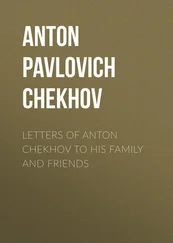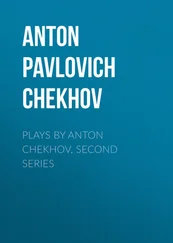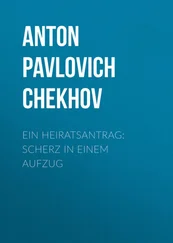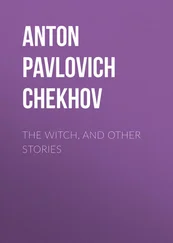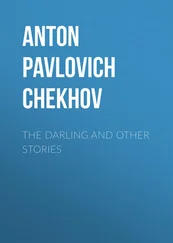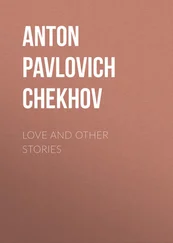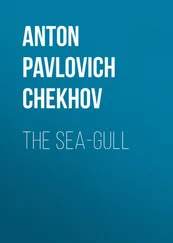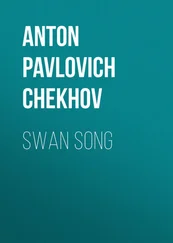Donald Rayfield - Anton Chekhov. A life
Здесь есть возможность читать онлайн «Donald Rayfield - Anton Chekhov. A life» весь текст электронной книги совершенно бесплатно (целиком полную версию без сокращений). В некоторых случаях можно слушать аудио, скачать через торрент в формате fb2 и присутствует краткое содержание. Жанр: Биографии и Мемуары, на английском языке. Описание произведения, (предисловие) а так же отзывы посетителей доступны на портале библиотеки ЛибКат.
- Название:Anton Chekhov. A life
- Автор:
- Жанр:
- Год:неизвестен
- ISBN:нет данных
- Рейтинг книги:5 / 5. Голосов: 1
-
Избранное:Добавить в избранное
- Отзывы:
-
Ваша оценка:
- 100
- 1
- 2
- 3
- 4
- 5
Anton Chekhov. A life: краткое содержание, описание и аннотация
Предлагаем к чтению аннотацию, описание, краткое содержание или предисловие (зависит от того, что написал сам автор книги «Anton Chekhov. A life»). Если вы не нашли необходимую информацию о книге — напишите в комментариях, мы постараемся отыскать её.
Anton Chekhov. A life — читать онлайн бесплатно полную книгу (весь текст) целиком
Ниже представлен текст книги, разбитый по страницам. Система сохранения места последней прочитанной страницы, позволяет с удобством читать онлайн бесплатно книгу «Anton Chekhov. A life», без необходимости каждый раз заново искать на чём Вы остановились. Поставьте закладку, и сможете в любой момент перейти на страницу, на которой закончили чтение.
Интервал:
Закладка:
3
FATHKK I «» I III* MAN
Egor took his family 300 miles south to ilir nrw steppe lands, tamed after centuries of occupation by nomadic Turkic tribes. Land was being sold to veterans of the Napoleonic wars and to German immigrants. Here Egor became estate manager to Count Platov at Krepkaia (Strong-point), forty miles north of Taganrog on the Sea of Azov. He pushed his three sons onto the next rung in Russia's social ladder, the merchant class, by apprenticing them. The eldest, Mikhail (born 1821) went to Kaluga, 150 miles southwest of Moscow, to be a bookbinder. The second, Anton Chekhov's father, Pavel, born 1825 and now sixteen, worked in a sugar-beet factory, then for a cattle drover, and finally as a merchant's shop boy in Taganrog. The youngest son, Mitrofan, became a shop boy to another merchant in Rostov on the Don. Egor's daughter Aleksandra, her father's favourite child, married a Vasili Kozhevnikov at Tverdokhliobovo near the steppe town of Boguchar.3
Egor remained on the Platov estates until he died, aged eighty-one. He was ruthless and eccentric. Like many managers of peasant stock, he was cruel to the peasantry: they called him the 'viper'. He also earned the dislike of his employers: Countess Platov banished him six miles away to a ranch. Egor could have lived there in a manorial house, but preferred a peasant's wooden cottage.
Chekhov's paternal grandmother Efrosinia Emelianovna, whom her grandchildren saw even less, for she rarely left the farm, was Ukrainian.4 All the loud laughter and singing, the fury and joy that Chekhov associated with Ukrainians, had been beaten out of her. She was as surly as her husband, with whom she lived fifty-eight years before her death in 1878.
Egor emerged once or twice a year to escort a consignment of the Countess's wheat to Taganrog, the nearest port, and to buy supplies or spare parts in the town. His eccentricity was notorious: he devised dungarees as formal dress and moved 'like a bronze statue'. He flogged his sons for any misdemeanour - picking apples, or falling off a roof they were mending. Pavel Chekhov developed a hernia after one punishment, and had to wear a truss for it throughout his adult life. Late in life Chekhov admitted: I am short-tempered etc., etc., hut I have become accustomed to
1762-1860
holding back, for it ill behoves a decent person to let himself go… After all, my grandfather was an unrepentant slave-driver.5 Egor wrote well. He is reported as saying: 'I deeply envied the gentry not just their freedom, but that they could read.' He apparently left Olkhovatka with two trunks of books, unusual for a Russian peasant in 1841. (Not a book was seen, however, when his grandsons visited him at the Platov estate thirty-five years later.)
His efforts for his children were not matched by much affection. Ë bully in life, on paper he could be rhetorical, obfuscating, or sentimental. A letter of Egor's to his son and daughter-in-law runs: Dear, quiet Pavel Egorych, I have no time, my dearest children, to continue my conversation on this dead paper because of my lack of leisure. I am busy gathering in the grain which because of the sun's heat is all dried up and baked. Old man Chekhov is pouring sweat, enduring the blessed boiling sultry sun, though he does sleep soundly at night. I go to bed at 1 in the morning, but up you get, Egorushka, before sunrise, and whether things need doing or not, I want to sleep. Your well-wishing parents Georgi and Efrosinia Chekhov.6 Like all the Chekhovs, Egor observed name days and the great Church feasts, but he was laconic. Pavel on his name day (25 June) in 1859 received a missive which read: 'Dear Quiet Pavel Egorych, Long live you and your dear Family for ever, goodbye dear sons, daughters and line grandchildren.'
Anton's maternal line was similar, and Tambov province, where the family came from, was as archetypically Russian as neighbouring Voronezh. Again, a peasant family of thrust and talent had bought its way into the merchant classes. Anton's mother, Evgenia Iakovlevna Morozova, had a grandfather, Gerasim Morozov, who sent barges laden with corn and timber up the Volga and Oka to market. In 1817, aged fifty-three, he bought for himself and his son, Iakov, freedom from the annual tax which serfs paid their owners. On 4 July 1820 Iakov married Aleksandra Ivanovna Kokhmakova. The Kokhmakovs were wealthy craftsmen: their fine woodwork and iconography were in civil and ecclesiastic demand. The Morozov blood had, however, I sinister side. Some of Gerasim Morozov's grandchildren - a maternal mule and an aunt of Anton and his brothers - died of ÒÂ. Iakov Morozov lacked the stamina of Egor Chekhov: in 1833 he
I
1
ÃË'ÃÍ I-'. Í II) I II I MAN
went bankrupt, then found protection (like Kgor Chekhov), from a General Papkov in Taganrog, while Aleksandra lived with her two daughters in Shuia. (Their son Ivan was placed with a merchant in Rostov-on-the-Don.) On n August 1847 a fire burned down eighty-eight houses in Shuia: the family property was lost. Then, in Novocherkassk, Iakov died of cholera. Aleksandra loaded her belongings and her two daughters, Feodosia (Fenichka) and Evgenia, into a cart and, camping on the steppes, trekked 300 miles to Novocherkassk. She found neither her husband's grave nor his stock in trade. She travelled 100 miles west to Taganrog and threw herself on General Papkov's mercy. He took her in to his house and provided Evgenia and Fenichka with a rudimentary education.
Anton's maternal uncle Ivan Morozov, forty-five miles away in Rostov-on-the-Don, served under a senior shop boy: Mitrofan Chekhov.7 Either Mitrofan or Ivan introduced Pavel Chekhov to Evgenia Morozova. In his twenties Pavel had a signet ring made. He inscribed on it three Russian words meaning 'Everywhere is a desert to the lonely man'. (Egor read the inscription and declared, 'We must get Pavel a wife.') The autobiographical record that Pavel compiled for his family in his old age has a laconic melancholy that surfaces at the rare moments of frankness in Anton's letters and frequently in the heroes of his mature prose: 1830 [be was then 5 years old] I remember my mother came from Kiev and I saw her 1831 I remember the powerful cholera, they made me drink tar 1832 I learnt to read and write in the priest's school, they taught the lay ABC 1833 I remember the grain harvest failing, famine, we ate grass and oak bark.8 A church cantor taught Pavel to read music and to play the violin, folk-style. Apart from this, and the ABC, he had no formal education. His passion for church music was the salve for his unh^ppiness, and he also had artistic ability, but his creativity drained away in compilations of ecclesiastical facts and what casual visitors called his 'superfluous words'. In 1854 Pavel and Evgenia were married. Evgenia had beauty but no dowry; while Pavel's appeal as a future merchant compensated for his equine looks.
6
1762-1860
Ivan Morozov, sensitive and generous, refused to sell suspect caviar, and was dismissed from Rostov-on-the-Don. He returned to Taganrog where Marfa Ivanovna Loboda, the daughter of a rich city merchant, fell for him. The youngest of the three Morozov children, Fenichka, married a Taganrog official, Aleksei Dolzhenko. She had a son, Aleksei, and was soon widowed.
Anton's mother, Evgenia, survived seven live births, financial disaster, the deaths of three of her children and her husband Pavel's tyranny. She had a shell of self-pity to retreat into, but she had few resources beyond the love of her offspring: she read and wrote with reluctance. Of the three Morozov children only Ivan had talent: he spoke several languages, played the violin, trumpet, flute and drum, drew and painted, repaired watches, made halva, baked pies from which live birds flew out, constructed model ships and tableaux, and invented a fishing rod which automatically landed fish. His tour de force was a screen painted with a mythological battle scene: it divided his shop from his living quarters, where he gave his visitors tea.
Читать дальшеИнтервал:
Закладка:
Похожие книги на «Anton Chekhov. A life»
Представляем Вашему вниманию похожие книги на «Anton Chekhov. A life» списком для выбора. Мы отобрали схожую по названию и смыслу литературу в надежде предоставить читателям больше вариантов отыскать новые, интересные, ещё непрочитанные произведения.
Обсуждение, отзывы о книге «Anton Chekhov. A life» и просто собственные мнения читателей. Оставьте ваши комментарии, напишите, что Вы думаете о произведении, его смысле или главных героях. Укажите что конкретно понравилось, а что нет, и почему Вы так считаете.

